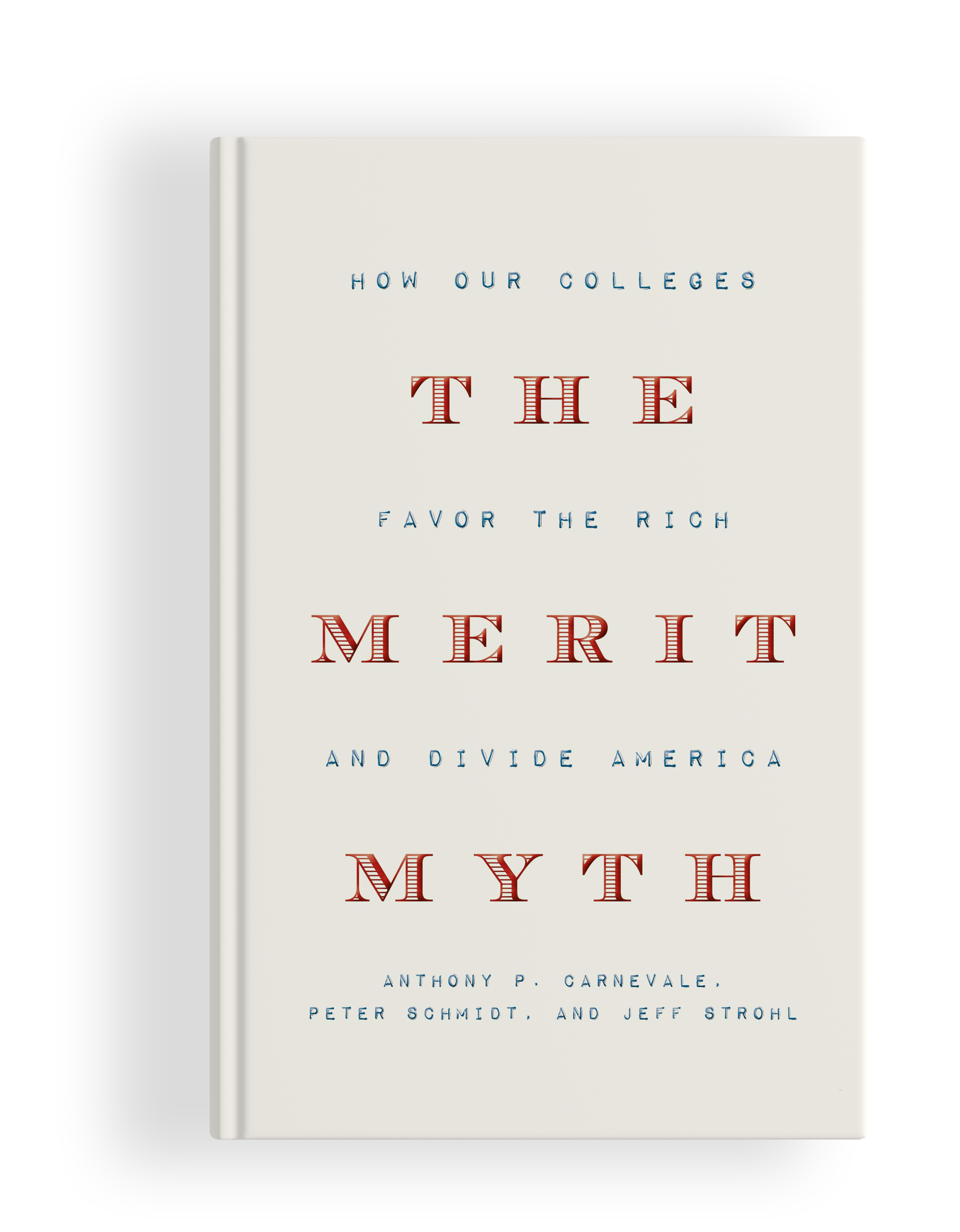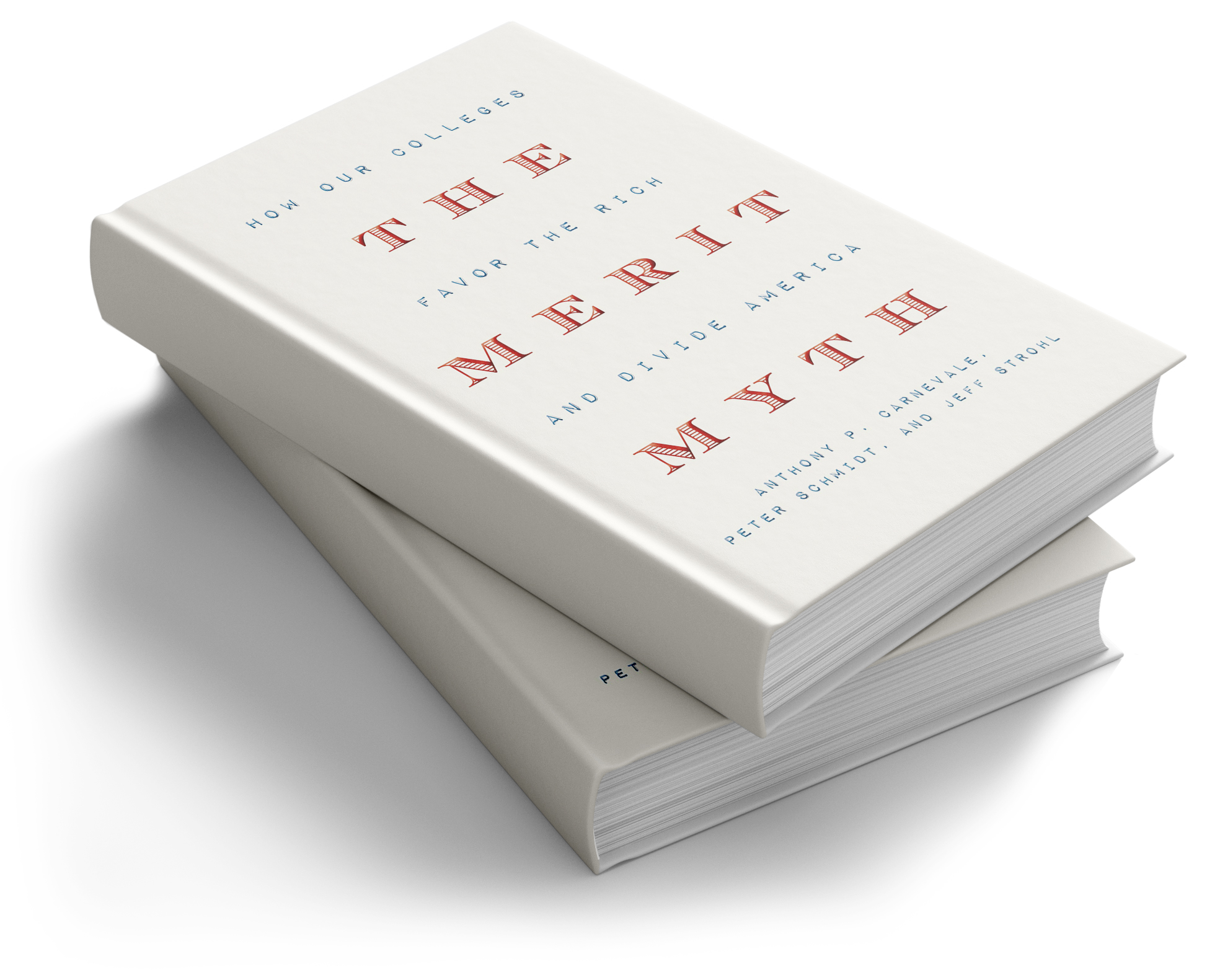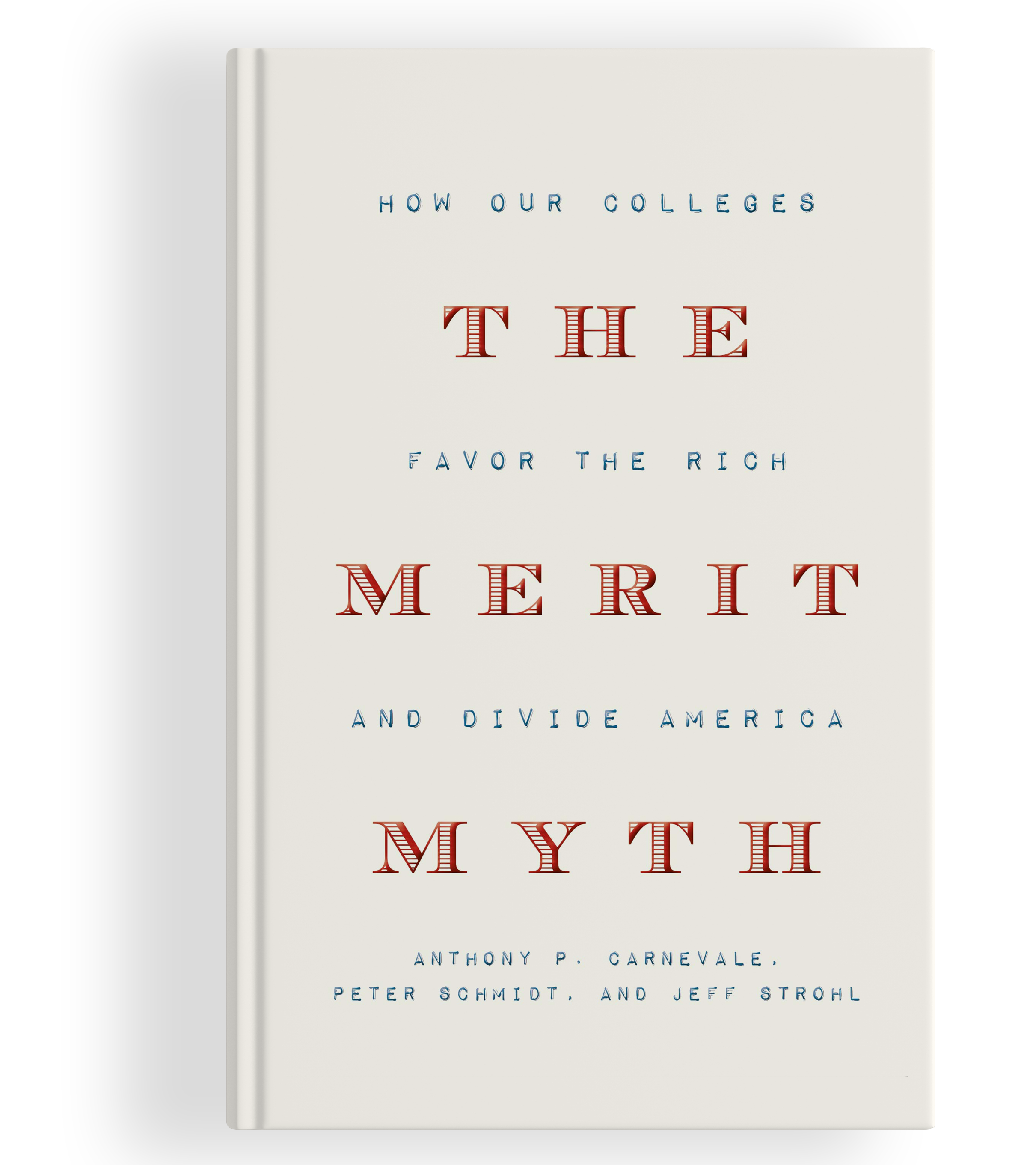The Merit Myth
How Our Colleges Favor the Rich and Divide America

Summary
The COVID-19 pandemic has thrown US higher education into disarray, left the survival of some colleges in doubt, and brought to the surface the dangers of our nation’s growing inequality and political polarization. In The Merit Myth: How Our Colleges Favor the Rich and Divide America, authors Anthony P. Carnevale, Peter Schmidt, and Jeff Strohl explore how higher education got into this vulnerable position in the first place: by encouraging a bifurcated system that lavishes attention on mostly wealthy White students, while giving far fewer resources to everyone else.
The Merit Myth notes that 60 to 70 percent of the growth in earnings gaps since the 1980s is tied to differences in access to and completion of college programs with labor-market value. The education gap between White, Black/African American, and Hispanic/Latino individuals means that White individuals are most likely to benefit from the college earnings premium—44 percent of White workers hold bachelor’s degrees or higher, compared to 30 percent of Black/African American workers and 20 percent of Hispanic/Latino workers. Moreover, only 19 percent of Black/African American and Hispanic/Latino students with high SAT scores go to selective institutions, compared to 31 percent of White students with similar scores.
Key Themes
Race and Class Divides
The philosophical underpinnings of the higher education system we aspired to create formed two separate systems demarcated by race and class.
Inequalities in College Prep and Access
The inequalities in college preparation and access are rooted in racial and economic segregation in housing and schools.
Admissions Practices that Favor the Affluent
In their pursuit of money and prestige, selective colleges favor the wealthy and reinforce intergenerational privilege.
Government Funding that Perpetuates Disparities
The government subsidizes elite higher education as a luxury good for the affluent while denying non-selective colleges and their students the resources needed to ensure that students graduate.
Legal Battles over Access
The legal battles over education access show why relying on the judicial system to bring equality is a mistake.
Framework for System-Wide Change
The authors assert the need to increase the share of citizens who attain the education necessary for good jobs, upward social mobility, financial security, and full and informed political participation. Policy changes that would help bring that about include the following.

Resources
For more on The Merit Myth, including ordering options, visit cew.georgetown.edu/MeritMyth. Proceeds from sales of The Merit Myth will help fund CEW’s efforts to promote educational reform.

